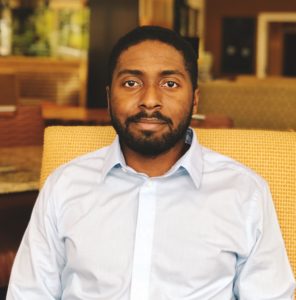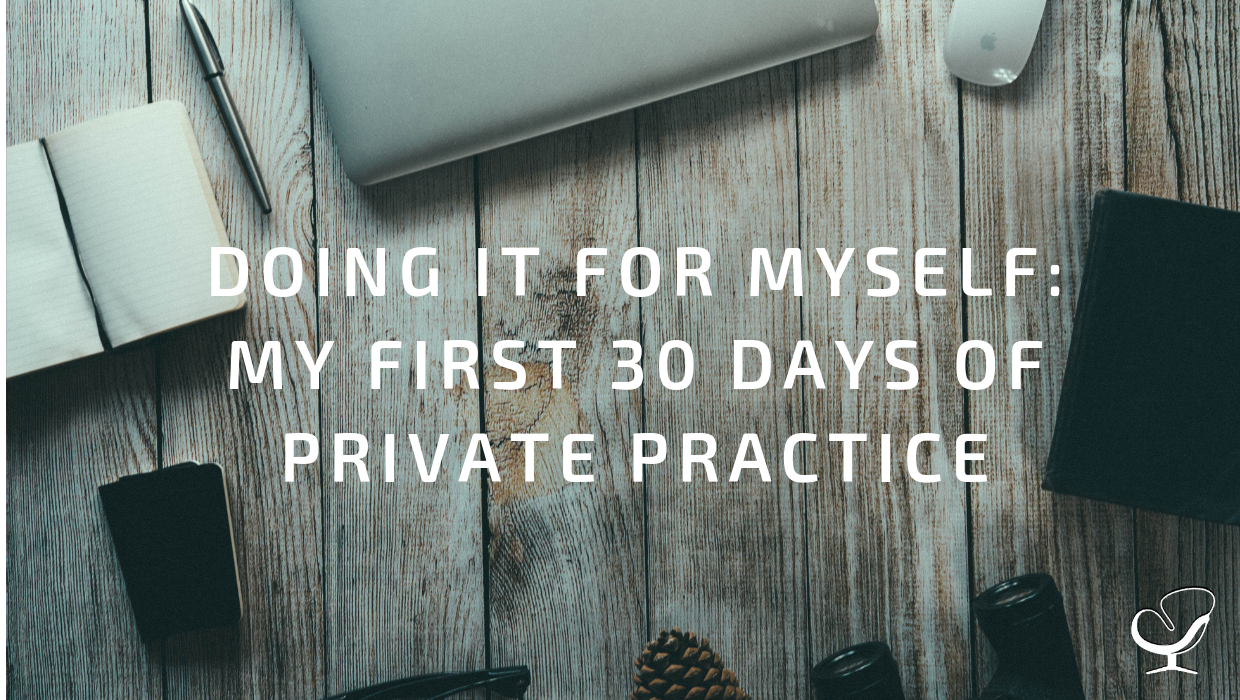My practice started abruptly. You can learn about the birth of my practice in my last article here. I’ve heard that the first few months of a business are the hardest. The first month was difficult for me. I had operating procedures in my head that had to be adjusted when I needed to execute them. It was different having to rely on myself for all of the scheduling and billing responsibilities instead of delegating some of those tasks to others. Speaking of billing, that was something I’ve never done before. How was I going to do that when the time came? What about marketing? I had a lot of questions which would mostly be answered by trial and error.
Thankfully I made it through the first month. Did I make thousands of dollars? No. Did I make a thousand dollars? No. I did make something though and felt proud of it. I made money on my own for my business. It was a good feeling, but I have a long way to go. I also submitted a few claims which were accepted. Now I’m waiting for the funds to transfer. I believe in sharing information and helping others. I hope you learn from my experiences, wins, and mistakes. I’ve listed some of the important things I’ve learned during the first 30 days.
Have alternative options available when possible
Originally my practice was supposed to be completely online. Those plans changed. I wanted all aspects of my practice to be conducted online. I wanted clients to schedule, complete paperwork, and submit payments online. Everyone is different so you may encounter having clients with other preferences.
Word of mouth is still powerful
Three of the four calls I received about my services this month were from word of mouth. I felt happy and fulfilled knowing that I made an impact to the point someone would recommend my services to another. This reinforces the importance of professionalism and building relationships with other members of the community within your practice area.
Organization really helps
I’m definitely not the most organized person. However, I see the necessity in having your practice operating procedures planned in a way that information is easily accessible. Being organized helps you manage your practice faster and allows you to focus time on other aspects of your business.
Determine your billing process
I’m broke and have few clients at the moment so I had to learn billing on my own. Thankfully I was able to use my prior knowledge and experiences in the field to have a general idea of what to do. My colleagues gave me assistance too. You should determine what practice management system you want to use and how you are going to submit claims if you plan on accepting insurances. If you choose to have a biller you should read this post on 10 Questions to Ask When Choosing a Biller in Private Practice.
If you take insurance you’ll probably be calling them often (at first)
Each insurance provider has its own operating procedure. Some are very similar while others are different. I had to call certain insurances multiple times until I learned the process needed to check authorizations and successfully submit claims. I frequently had long wait times on the phone, but do note that some offer online support which is typically much faster.
Expect mistakes and confusion… Then learn from it
I felt like I made mistakes daily. I managed to have sessions and make some money despite them. Running a business is like practicing. It will get easier with more repetition (I hope). Remember that you don’t have to start this journey on your own. There are many resources available. I suggest reading these two articles to gain further insight into what is necessary for your private practice to succeed. The first article includes a great infographic which lists different duties and responsibilities you’ll need to have covered during the first year of your practice. The second article contains some tips and resources to help you get started.
 Michael Gilliard II was born and raised in Charleston, SC. He a Licensed Professional Counselor (LPC) and Nationally Certified Counselor (NCC) in Georgia. His private practice is named Ujima Counseling, Coaching, and Consulting. It is based on the Kwanzaa principle of Ujima which means “to build and maintain our community together and to make our brother’s and sister’s problems, our problems and to solve them together.” He is also working on experiences which integrate mental health and XR technology. Please contact him to learn more.
Michael Gilliard II was born and raised in Charleston, SC. He a Licensed Professional Counselor (LPC) and Nationally Certified Counselor (NCC) in Georgia. His private practice is named Ujima Counseling, Coaching, and Consulting. It is based on the Kwanzaa principle of Ujima which means “to build and maintain our community together and to make our brother’s and sister’s problems, our problems and to solve them together.” He is also working on experiences which integrate mental health and XR technology. Please contact him to learn more.

